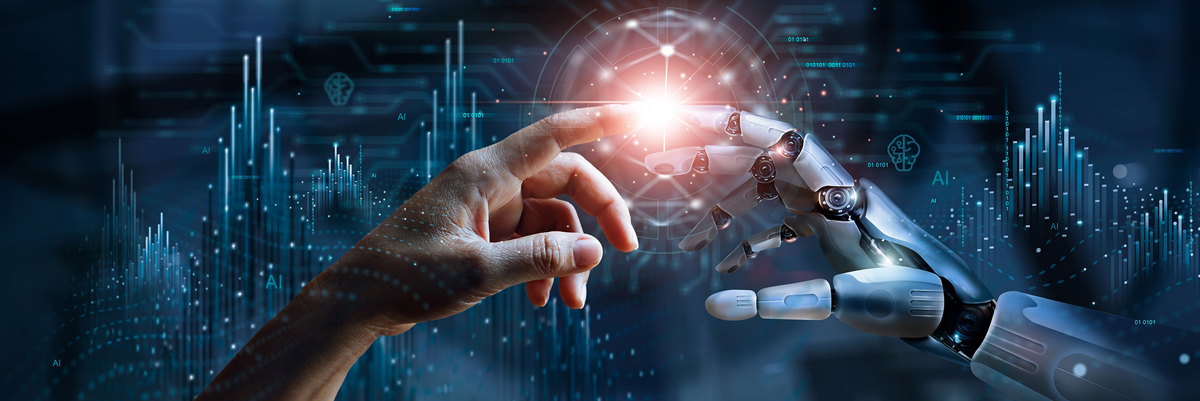
8 March 2024
In today's digital age, the convergence of Artificial Intelligence (AI) and Machine Learning (ML) with Enterprise Resource Planning (ERP) systems heralds a new era of intelligent enterprise management. These transformative technologies are reshaping traditional ERP platforms, oering advanced capabilities that optimize operations, drive innovation, and enable data-driven decision-making. This article explores the profound impact of AI and ML on ERP systems, unveiling the future landscape of enterprise management.
The integration of AI and ML in ERP facilitates intelligent automation of routine tasks and processes. Robotic Process Automation (RPA) and cognitive automation technologies automate repetitive workflows, such as data entry, invoice processing, and inventory management. This automation not only streamlines operations but also reduces human error, enhances eciency, and frees up employees to focus on value-added activities.
AI-driven ERP systems deliver personalized user experiences tailored to individual preferences and roles. ML algorithms analyze user interactions, historical data, and contextual information to customize interfaces, workflows, and recommendations. By oering intuitive and user-centric experiences, organizations can boost user adoption, productivity, and satisfaction across the enterprise.
AI and ML enable predictive maintenance and optimization of assets within ERP systems. By analyzing sensor data, equipment performance metrics, and historical maintenance records, predictive analytics algorithms can forecast equipment failures, schedule maintenance proactively, and optimize asset utilization. This predictive approach minimizes downtime, reduces maintenance costs, and extends the lifespan of critical assets.
AI-powered ERP systems bolster cybersecurity defenses by leveraging ML algorithms to detect and mitigate security threats in real-time. These systems analyze network trac patterns, user behavior, and system anomalies to identify potential security breaches and unauthorized access attempts. By automating threat detection and response, AI-driven ERP platforms enhance data protection, compliance, and resilience against evolving cyber threats.

In conclusion, The integration of AI and ML technologies into ERP systems represents a paradigm shift in enterprise management practices. These transformative technologies unlock new possibilities for optimizing operations, driving innovation, and achieving competitive advantage in today's digital economy. As organizations embark on digital transformation journeys, AI-driven ERP solutions will continue to evolve, oering unparalleled insights, automation, and agility to meet the demands of a dynamic business landscape. By embracing the future of AI and ML in ERP, businesses can unlock new opportunities, mitigate risks, and thrive in an increasingly complex and competitive marketplace.